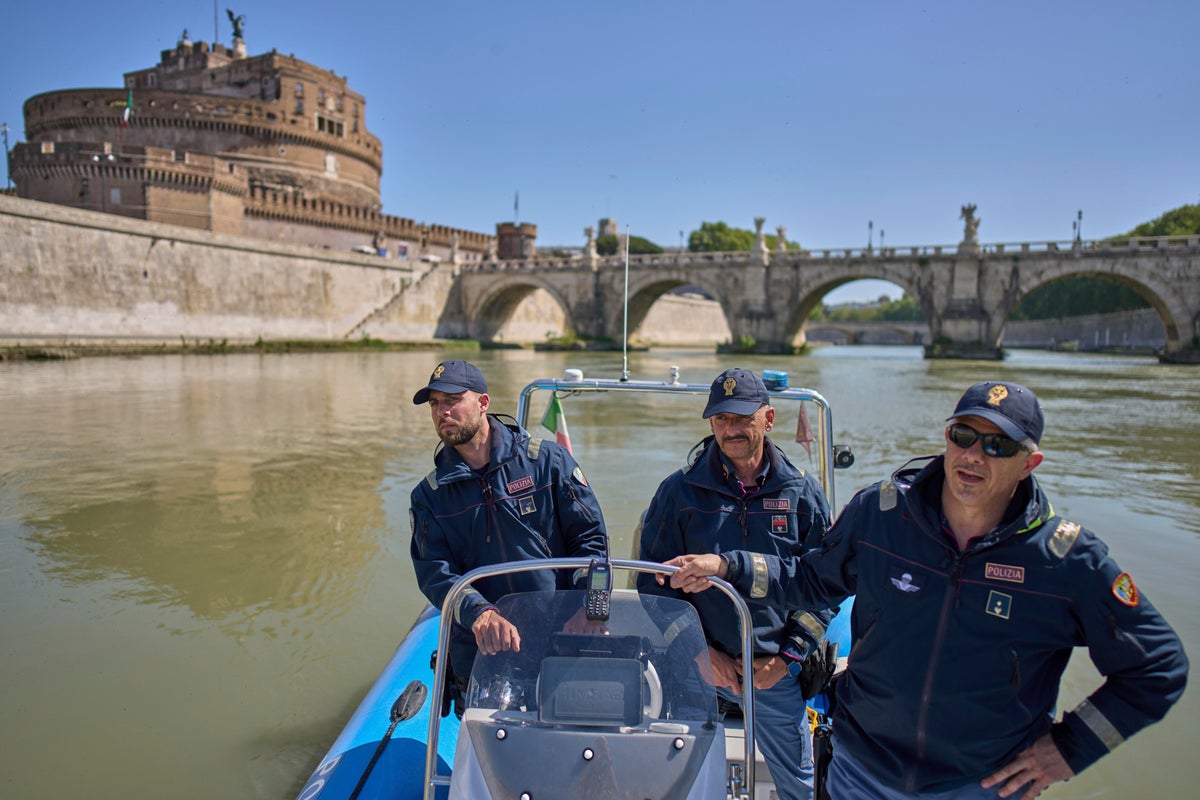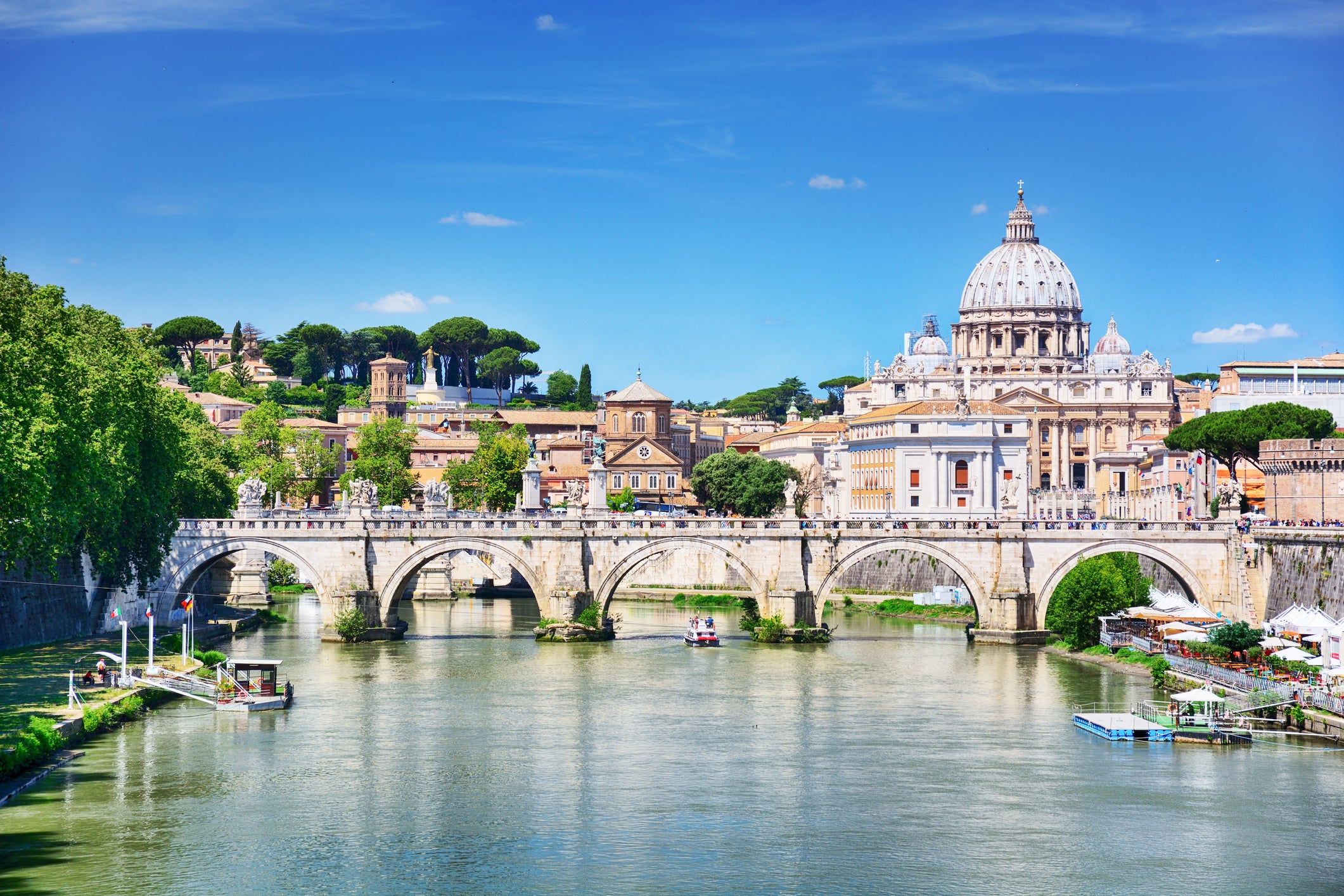
Rome’s mayor promised that the Tiber would be clean enough for swimming within five years – a pledge that was immediately met with scepticism given the river’s long history of pollution and health warnings.
Roberto Gualtieri said during a visit to the Osaka Expo that a working group had already been established to plan the clean-up, drawing in national and regional authorities as well as scientists.
"We are pleased to have already established that this is an entirely achievable goal,” he said, “within five years, we will be able to swim in the Tiber.”
Swimming in the river, which cuts through the heart of Rome, is banned since the 1960s and those caught face fines of hundreds of euros. Only a symbolic New Year’s Day dive from a city bridge is allowed.
Mr Gualtieri said the task could be easier than the €1.4bn Seine project in Paris where swimmers returned this summer for the first time in a century during the 2024 Olympics.
Parts of the Tiber already meet water-quality standards on certain days but heavy pollution flows from the Aniene river and other waste discharges still render much of it unsafe.
Health experts urge caution.
The Italian Society of Environmental Medicine says current river conditions carry “extremely high” health risks, pointing to the presence of E coli, which can cause diarrhoea and vomiting, as well as leptospirosis, a rat-borne disease that can lead to high fever and muscle pain. Skin and eye infections are also a danger.
Rome’s environment councillor, Sabrina Alfonsi, said the inter-institutional working group would map out the regulatory, technical and environmental steps needed to make the river safe, including new purification infrastructure and tighter monitoring of discharges.
The first meeting of the committee is scheduled for October, according to Nova news agency.

The city has already redeveloped stretches of the riverbank with Jubilee funds, creating new paving, social spaces and greenery across five sections of the Lungotevere embankment.
A previous project dubbed “Tiberis” was marketed as a riverside beach but swimming remained prohibited.
In Paris, despite years of investment, bacterial contamination still forced Olympic events on the Seine to be postponed, and some athletes took medication to guard against illness.
Rome’s mayor insisted the capital would succeed where others struggled.
“Paris started with higher pollution levels,” Mr Gualtieri said, according to Nova, adding that authorities had already identified “three to four necessary actions” to secure bathing conditions even downstream of the Aniene.
Spain to teach children disaster survival skills after deadly floods and wildfires
One dead and thousands without power as torrential rain batters Tokyo
China suffered damage worth £2.2bn in August as monsoon wreaked havoc
Government rules out plan to block out the sun after warning of ‘severe’ risks
These 14 companies account for a third of global warming - who are they
Mapped: Storm Tapah forces evacuations in China and shuts schools in Hong Kong







